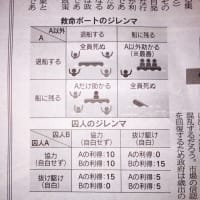 | The End of Poverty: How We Can Make it Happen in Our Lifetime |
| Jeffrey Sachs | |
| Penguin |
久々に英語の原書が読みたくなり、Kindle版にて読了。
8月の初めから通勤電車の中で一日15分ずつくらいちょっとずつ読み進めて、読了まで4ヶ月。
著者のジェフリー・サックス氏は、米国籍の開発経済学者。
国際的な貧困対策が専門分野で、ボリビア、ポーランド、ロシアの経済危機にあたっては各国政府の経済顧問も務めた人物。
この本は2005年に書かれたものなので10年以上経っているわけだけど、著者が思い描いたようには貧困は無くなっていないのが現実か。
著者の主張の要点になるような部分を以下引用。
Clinical economics is needed to replace the past twenty years of development practice, known widely as the structural adjustment era. This era, ushered in by the conservative turn in the United States under President Ronald Reagan and in the United Kingdom under Prime Minister Margaret Thatcher, was based on a simplistic, even simpleminded, view of the challenge of poverty. The rich countries told the poor countries: “Poverty is your own fault. Be like us (or what we imagine ourselves to be—free market oriented, entrepreneurial, fiscally responsible) and you, too, can enjoy the riches of private-sector-led economic development.”
レーガン=サッチャー的な市場と自己責任をベースにした考え方に、著者は批判的。
それでは貧困の解消にはつながらない、と。
During the past decade I witnessed close at hand how relatively well-governed countries in Africa, such as Ghana, Malawi, Mali, and Senegal, failed to prosper, whereas societies in Asia perceived to have extensive corruption, such as Bangladesh, India, Indonesia, and Pakistan, enjoyed rapid economic growth.
アフリカには、統治能力の高い政府を持つ国もある。
だが、そのような国々も、貧困を脱して経済成長へと歩みを進めたアジア諸国と同じように繁栄することはできていない。
それはいったい何故なのか。
Moreover, much of Africa’s population lives in the interior of the continent rather than at the coast. Indeed, sub-Saharan Africa’s highest population densities are in the highland regions, such as Ethiopia and Rwanda, because rainfall reliability and soils tend to be a bit better there than in the interior lowlands and coast. Yet these highland populations are isolated from the international division of labor.
地理的条件が大きく影響している。
例えば、エチオピアやルワンダでは多くの人々が高地での生活を余儀なくされている。
内陸の高地に暮らしていると、どうしてもグローバルな経済からは隔絶されてしまう。
The end of poverty must start in the villages of Sauri and the slums of Mumbai, and millions of places like them. The key to ending poverty is to create a global network of connections that reach from impoverished communities to the very centers of world power and wealth and back again.
まずはグローバルな経済とのつながりを作るところから始めないと、貧困を終わらせることはできない。
The first is that although trade is important, the popular slogan “trade not aid” is wrong. Poor countries will need “trade plus aid,” since trade reforms alone are not nearly powerful enough to enable the poorest countries to escape from extreme poverty.
交易は重要だが、交易だけ行えば援助は不要かというとそうではない。
貧困から抜け出すには、交易も援助も必要なのだ。
Governance and higher incomes go hand in hand not only because good governance raises incomes, but also, and perhaps even more important, because higher income leads to improved governance.
貧困諸国の統治能力を上げることが、その国の所得を向上させることにつながる。
だが、所得が向上すれば統治能力も改善するという関係性もある。
The antiglobalization movement is wrong to suppose that private companies are the ones to design the rules of the game. If governments would do their job in setting up the right rules, major international companies would play a vital role in solving problems.
アンチグローバリズムは私企業が身勝手なルールを作っていると悪者に仕立て上げるが、そうではない。
ルールを作るのは政府部門であり、正しいルールの下であれば私企業は問題を解決するための重要な役割を果たす。
著者は、資本主義経済を否定しているわけではない。
だが、資本主義がうまく回り自助努力で飛躍するレベルに至るためには、富裕国からの援助や債務カットなどが必要だと説く。
また、その国の置かれた地理的条件や国情に合わせた処方箋が必要であると。
そのために必要な援助額は、米国をはじめとする富裕国のGDPの、ほんの0.7%程度で済むのだと。
Brexit、トランプ勝利、移民排斥。
著者が期待する世界は遠のいているように思えるが…
邦訳はこちら↓
 | 貧困の終焉: 2025年までに世界を変える (ハヤカワ文庫 NF 404) |
| ジェフリー・サックス | |
| 早川書房 |
























